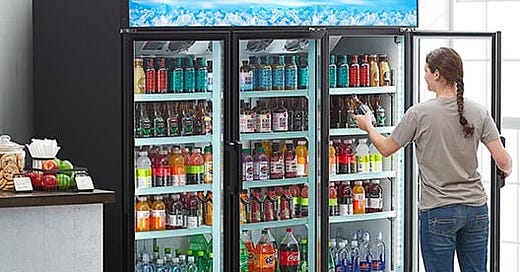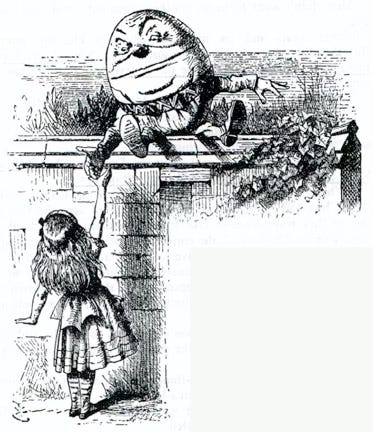Goodbye to Capacity Payments (for Energy Efficiency in PJM)
FERC approves dropping capacity payments for "Efficiency Resources."
Breaking News:
Energy Efficiency Resources will no longer get capacity payments in PJM.
FERC has approved the removal of Energy Efficiency resources from the capacity market. In Utility Dive, Robert Walton wrote an excellent article about FERC, PJM, and efficiency resources.
As the article explained, PJM eliminating capacity payments for energy efficiency resources would be all right because “ eliminating energy efficiency payments would benefit consumers by reducing capacity payments without adversely affecting resource adequacy…”
The quote above is from FERC, within the Walton article. Kudos to FERC!
I have been following the PJM capacity payment controversy for quite a while. In August I wrote about the capacity price rise at PJM: Ten Times as Expensive at PJM. Then I wrote more posts on the subject. Walton’s article also describes this history.
Capacity and Efficiency
When a grid operator makes a capacity payment for an Energy Efficiency Resource, what are they paying for?
How can you tell that Energy Efficiency has worked? Energy Efficiency is a much squishier concept than Demand Response. Demand Response is usually requested by the grid operator, and it is measurable (imperfectly) by a drop in demand. In contrast, in trying to understand Energy Efficiency as Capacity, I felt I had entered the childhood classic, Through the Looking Glass. I was in the scene where Humpty Dumpty explains to Alice, “When I make a word do a lot of work like that…I always pay it extra.” In this case, the word was “efficiency.”
Paying For Efficiency
Let’s look at “Energy Efficiency as capacity” at PJM.
What is Energy Efficiency? In the sense that I am discussing, it is the application of technology to reduce demand. Examples are using LED lightbulbs instead of incandescent bulbs, adding insulation to homes, reducing power requirements for home appliances, or placing doors on refrigerators in supermarkets instead of using open refrigerators. The technology can be simple (a clear door on a refrigerator) or advanced (LEDs). In any case, the technology reduces energy demand.
Energy efficiency projects usually include an up-front capital expenditure in return for a long-term reduction in energy use. The entity (person or company) installs an efficiency method. Therefore, in the future, they will use less electricity to obtain the same result. Many Energy Efficiency measures are subsidized because reducing energy inputs for the same effective outcome is seen as a good thing for society. The usual calculation compares the upfront cost (subsidized or not) versus how much the users’ energy bills are lowered.
However, in some RTO areas, there’s another wrinkle. “Efficiency Resources” are eligible for Capacity Payments. Lowering demand is considered the equivalent of building more supply, and supply gets capacity payments. Since efficiency lowers demand, efficiency gets capacity payments.
The payments we are discussing are capacity payments. A capacity payment for 40 MW means that there is 40 MW of installed capacity available to the grid operator. When some of that installed capacity supplies energy to the grid, the owner will also get energy payments. Energy payments are very time-dependent, but a capacity payment is usually not highly time-dependent. Capacity payments are set for months (seasonally) or years. In contrast, energy payments are recalculated every five minutes or so.
PJM Again
An Efficiency Resource is paid because it has lowered the demand that a grid operator needs to meet. In contrast, a Demand Response Resource is often called upon by the grid operator. The operator can observe the response to their Demand Response request. It is difficult to determine how much an Efficiency Resource has reduced demand.
How much was PJM paying for efficiency? As I noted in my earlier post, Efficiency in Capacity Markets, PJM paid about $120 million in capacity payments to Energy Efficiency Resources in 2024-25. In contrast, $14 billion in capacity payments cleared PJM’s most recent auction. EE capacity payments are a relatively small percentage of the PJM capacity costs.
But what is PJM paying for with that $120 million? When I read this press release from PJM about the 2025/2026 auction, most of the capacity results are described clearly. For example, natural gas was around 50% of the capacity resources that cleared the auction.
“The auction cleared a diverse mix of resources, including 48% of gas, 21% of nuclear, 18% of coal, 1% of solar, 1% of wind, 4% of hydro, 5% of demand response and 2% from other resources.”
Why wasn’t EE mentioned in this list? And why do I care about that $120 milllion? These questions lead to the next topic.
Anger Issues
Why does this $120 million make me angry? If I was angry at every $100 million that our government or utilities misspent, I would always be angry. I would be a candidate for the loony bin. Why does this $100 million matter to me? Here are my anger issues:
Capacity, but not part of the supply. EE was not mentioned because in the list because PJM removed EE from its evaluation of available supply. If something is not in the available supply, it’s not supposed to get capacity payments. However, PJM added “uplift” payments for EE. These payments are based on the capacity clearing price, so PJM is basically making capacity payments to a resource which is not-in-the-supply (wink, wink). The capacity payments have been made by a roundabout method. That’s the first thing that has made many people (including me) angry.
Capacity savings that PJM doesn’t control and doesn’t verify. The best description of these problems is in the PJM Independent Market Monitor’s Complaint about Energy Efficiency Sellers, dated May 31, 2024. The efficiency-capacity sellers claim capacity payments, but the Market Monitor asserts that groups that sell EE have not proven ownership or monitoring of those capacity assets. Two quotes from Market Monitor’s document (emphasis added):
“ (some of the Seller’s programs) are not characterized by the requisite element of being associated with end use customers. These programs instead aggregate sales data of products that end use customers independently made the decision to purchase, (the capacity seller) claim(s) to own the associated capacity rights and submit(s) this data to PJM to support its participation in PJM’s Capacity Market.” (page 14)
“The Reports fail to adequately demonstrate exactly where the measures were installed. As a result, there can be only a description of the types of equipment but no actual list of installed equipment or actual end use customer locations…. Because the Reports provide no basis for determining that the Indicated Energy Efficiency Sellers have provided any energy efficiency relevant to PJM or PJM customers, it is unjust and unreasonable to require PJM customers to pay, in the aggregate, $128 million in the BRA (Base Residual Auction) alone for EE that has not been demonstrated to exist.” (page16-17)
The idea of capacity payments for EE has been subverted. As I understand it, capacity payments are supposed to encourage a company to make those upfront capital investments that will result in future savings. The investment will lower energy use. But if a company doesn’t have to invest anything, there is no reason for such payments. If all an efficiency seller needs to do is call Home Depot and ask how many energy efficient refrigerators they sold recently, why pay them? At least, why pay the EE seller? Paying Home Depot may be worthwhile…
Why capacity payments?
Okay. I feel a little better about not being able to define exactly what PJM is buying with these Energy Efficiency Capacity payments. It seems to be a mystery to many people, including the Market Monitor.
We can’t measure energy efficiency reliably because ultimately we can’t define it except as the product of a subtraction. We are asking what the load would have been (who can possibly check this?) versus what the load is. The ratepayer is paying for things that can’t be verified.
Feeling Good
Efficiency is usually its own reward. Actual energy efficiency saves money for the electricity end-user. If I make a reasonable decision to install something that will lower my electricity bill, I should not need a government payment as my reward. The savings will pay me automatically.
I think we should keep government programs that help poor people afford efficiency. However, the efficiency programs which get capacity payments are usually not designed to help the poor. They help the utility and save carbon emissions. I am certain that there are more effective ways to save carbon emissions than finding out how many efficient appliances have been sold in an area.
Feel Good versus Do Good
Any kind of payment for energy efficiency has a “feel-good” factor. But measurement of efficiency savings is hard. Capacity payments for efficiency can be easy to game. I doubt that capacity payments for efficiency are effective at saving energy.
I am glad to see that PJM has abolished capacity payments for EE.
End Notes:
Photo at the head of this post is from Webstaurant Store
A quick thank-you to the author of the Energy IQ Substack for his help with this post.
Image from Through the Looking Glass, Sir John Tenniel artist. This graphic is from the Victorian Web website.)
I wrote most of this post about three weeks ago. After that, a bunch of stuff happened in my personal life. I put the post aside. About two weeks ago, Irina Slav wrote a great post on the misuse of words like “efficiency.” I heartily recommend it. The Death of Words.
I was also shy to post this because of The Election. Who cares about capacity payments while people are claiming that The Fate of America is at stake? But the election is over, thank heavens!






...and then, there is Jevons Paradox, which frequently offsets the expected consumption reductions from efficiency improvements. (https://quickonomics.com/terms/jevons-paradox/)
As always, I'm smarter for reading your analysis, Merideth.
One related point that kept occurring to me as I read this is that enhanced energy efficiency doesn't necessarily lead to lower energy use, and often just the opposite. The 70 year old home I live in has a far more efficient range, furnace & refrigerator than it did 7 decades ago, and now has LED bulbs everywhere.
#EarthSaved!!!
Well, no. Now there's four televisions instead of one, three refrigerators, a microwave, and an incalcuable number of electronic devices that didn't exit even thirty years ago (cell phones, computers, the tablet I'm typing on, etc... ) that must be powered up.
Our life is far richer in material terms than was the world of the original owners of this house, but not because we're saving so much money on gas & electric. We may even be spending more.
Multiply my results by 350 million for best estimates of power savings (or likely not) from energy efficiency in America.